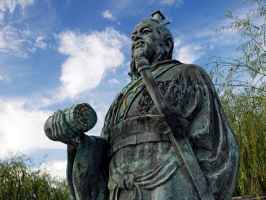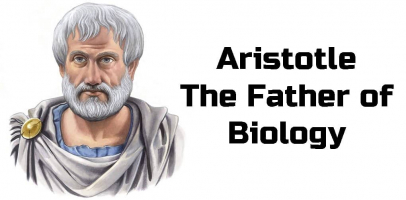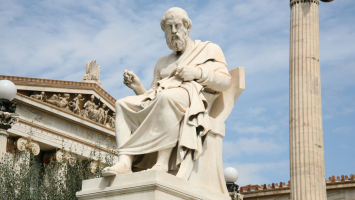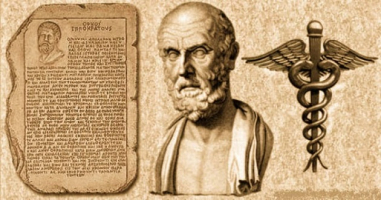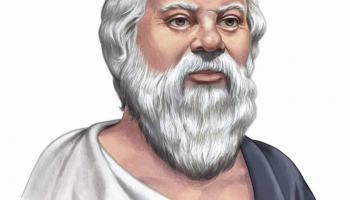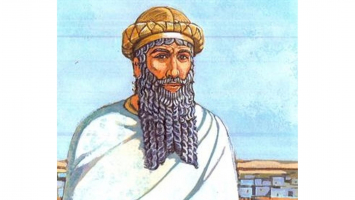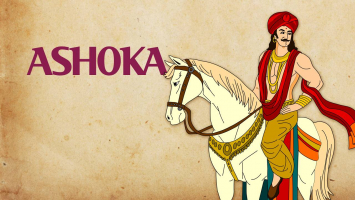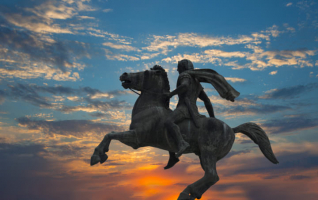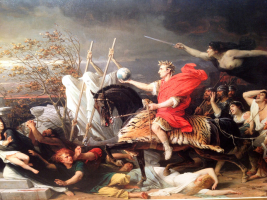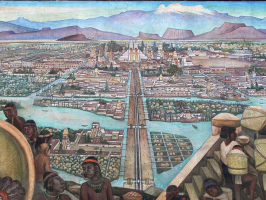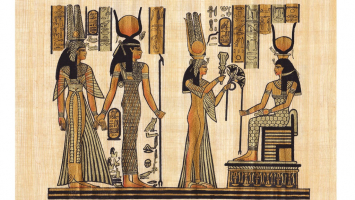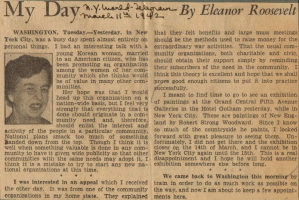Top 10 Major Contributions of Confucius
Confucius (551 BC - 479 BC) was a Chinese philosopher who is considered to be one of history's most influential. The major contributions of Confucius have had ... read more...a great impact on people's lives not only in China but all over the world. Born in a time of political and social turmoil, Confucius developed a philosophy that would later come to be known as Confucianism and subsequently gave rise to another influential philosophy called Neo-Confucianism. His teachings have dominated Chinese thought and culture for centuries and are still present in society today. Among other things, Confucius emphasized family, kinship, loyalty, justice, encouraging humanity, and strengthening social ties.
-
Confucianism is a philosophy or way of life named after its founder Confucius. Therefore, he is also known to the world as the Father of Confucianism. Also known as Ruism, Confucianism can be thought of as a religion, tradition, teaching, or ideology. It first emerged as inspiration from Buddhism and later developed as a personal philosophy that influenced the lives of many people. Confucianism includes many philosophies that not only teach us how to live ethically but also how to run a just government effectively. It became extremely influential and had a great impact on Chinese history, this is the major contribution of Confucius.
In many ways, Confucianism carries the essence of belief in the presence of the divine as many of his teachings speak of how a human being must walk the legal path to heaven. It crosses a path somewhere between humanity and religion. His teachings influenced the populations of many East Asian countries such as China, Vietnam, Korea, and Japan and are still revered to this day. Some key points about Confucianism are stated as Confucianism is mostly indifferent to the great metaphysical and physical mysteries but takes a more practical approach. It emphasizes belief in and encourages humanity. It is like a moral guide for different classes of society, the government, and its institutions. It is not comfortable with hierarchy but values and respects each building block of society. It encourages collectivism and strengthens social bonds. It emphasizes respect for family, age, and tradition. It focuses on education and meritocracy. It believes in personal examples as superior to explicit rules of behavior. Confucius deserves to be the Father of Confucianism praised and admired by all generations.
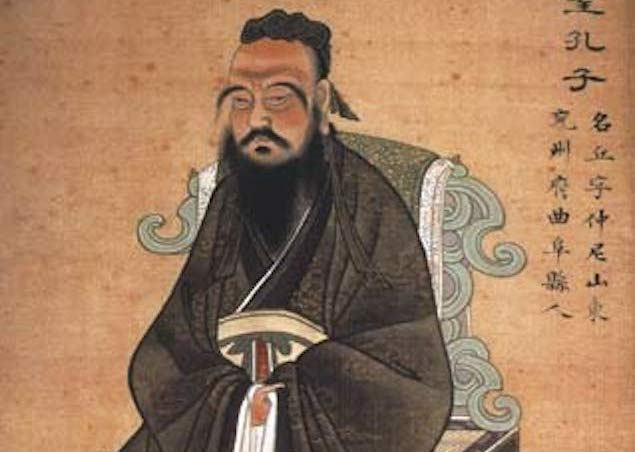
Source: theschooloflife.com 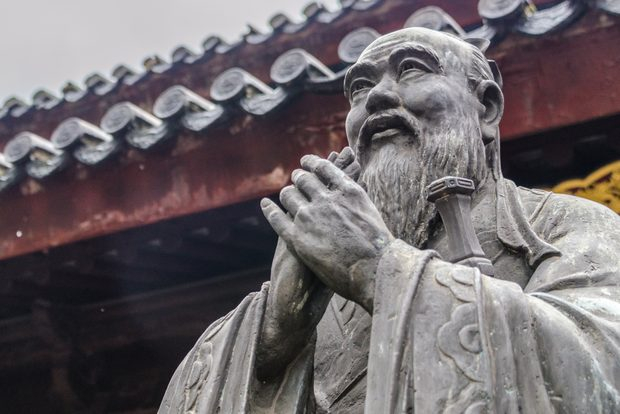
Source: historyextra.com -
The teachings of Confucius have brought something of a cultural revolution to the world, and many cultures have adopted his philosophy, which is admirable for breaking cultural boundaries. His simple yet ethical way of life has attracted millions of people and introduced them to a new way of thinking. His ideas about humanism touched the lives of many people and broke cultural boundaries. The development trend of social history has helped Confucius to have progressive views, break away from mysticism and religion, and put human problems first to solve.
Thus, breaking cultural boundaries - Confucius' philosophical thought is a system of categories and principles with very rich and profound content; They have a unified and close relationship with each other, vividly expressing the concept of the world and people, morality, social politics, such as religion, neutrality, neutrality, and naturalism, heaven, man, wisdom, bravery,... bring major contributions of Confucius. They always penetrate each other and penetrate into all areas of social life, because their authors desire to solve the problems posed by society. This is perhaps the most brilliant achievement in the life philosophy of Confucius. In the philosophical system of Confucius, the world view, the human being, the socio-political thought, and the moral and ethical thought are unified. These thoughts are focused on reflecting on human life and nature, expressing Confucius's efforts and wishes to stabilize the caste order in society, in order to build an ideal society. Therefore, it can be said that Confucius' philosophical thought is deeply humane.
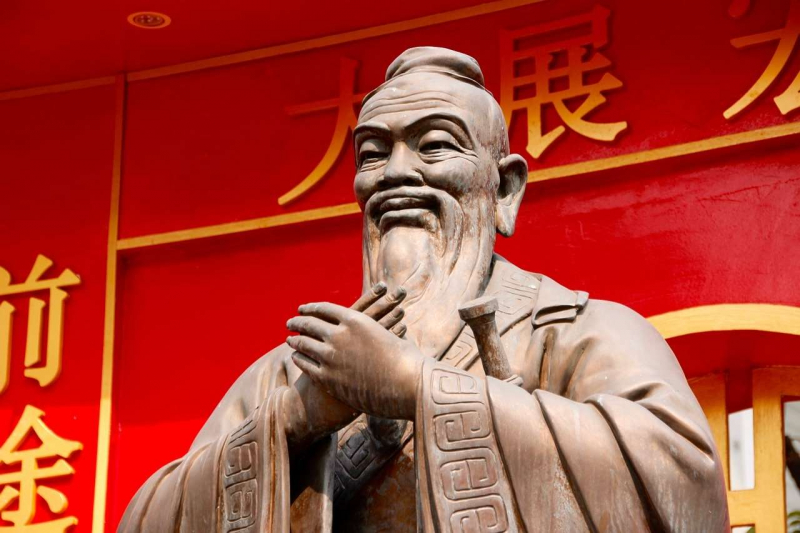
Source: globaltimes.cn 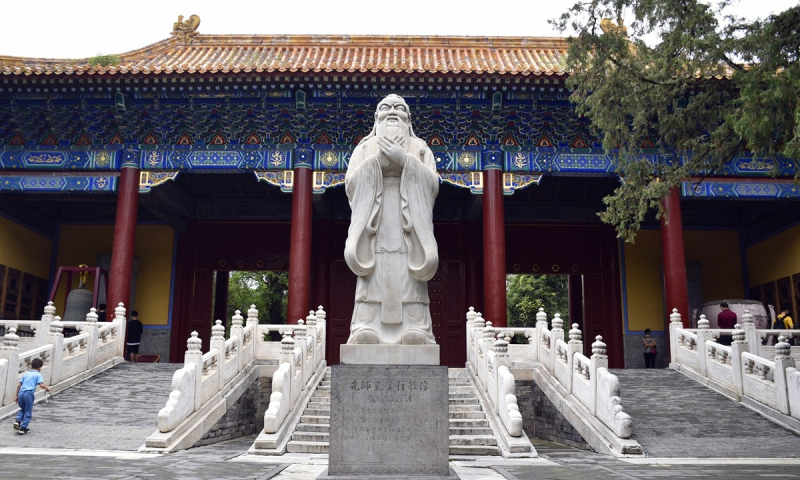
Source: asiaexchange.org -
With impact on politics, Confucius believed that the best way to make a government successful is for the ruler to be virtuous. If the ruler is virtuous, the people will automatically follow. If the king is competent and works ethically and no one is forced to do things against their will, then people will eventually look to their ruler. Confucius held a very strong view of bribery, believing that an inner sense of shame would prevent people from doing wrong and lead them on the path of virtue.
Confucius's political thought is for social stability - a peaceful and prosperous society. According to Confucius, it is the righteous path, and the way people do politics is to be upright, and use politics to lead the people. In order for people to have religion, return to rituals, strengthen the virtues of humanity, and respect etiquette, society will be stable. Confucius put forward the theory: "Humanity - Righteousness - Righteous name". Humanity is the central category of Confucius' political theory. Humanity is the measure that determines the success or failure, good or bad of politics. It is expressed in politics such as loving people, cultivating oneself, correcting oneself according to the rites of being benevolent, respecting, and using good people. To take care of the people - to provide for the people to eat and clothe, and to perform the duties of the laity and teaching literature, and virtue. Society takes the family as the basis and model, respects filial piety, loves children, and respects them. Impact on politics has been hailed as a major contribution of Confucius.
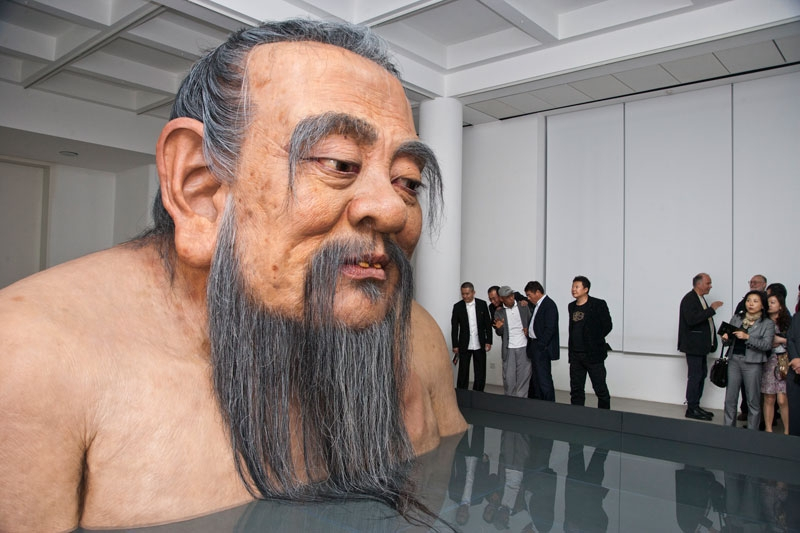
Source: nationalgeographic.com 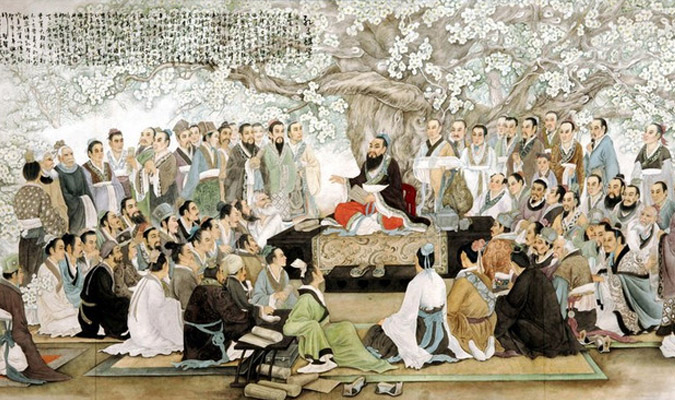
Source: ancientchinaconfucianism.weebly.com -
Regarding the impact on education, this is a very special influence because Confucius was both a learner and a mentor. He contributed to China's education system not only through his teachings and ethics but also by promoting education for the poor and the less fortunate. The Zhou Dynasty provided education for government officials and public managers but this was only for the nobility, and the public had no access to education. Only the elite had the opportunity to receive a traditional education based on the six arts: chariot driving, mathematics, music, archery, calligraphy, and etiquette. To break this feudalism and aristocratic monopoly, Confucius established private institutions to teach students from all walks of life. He received many disciples and trained them to master the six arts. Confucius himself constantly learned and continue to hone his skills so he can better teach others.
Confucius made an impact on education as well as other impacts on society by creating a school, he became legendary thanks to this major contribution of Confucius. The school educated young boys in a Confucian way and also taught them calligraphy so many of the boys went on to become scholars. A form of the public education system was established later in the Han dynasty. Not only elites from the upper class can go to schools, but people from the lower classes can also receive good education Confucius has three thousand disciples and thus summarizes many effective methods of education currently in use.
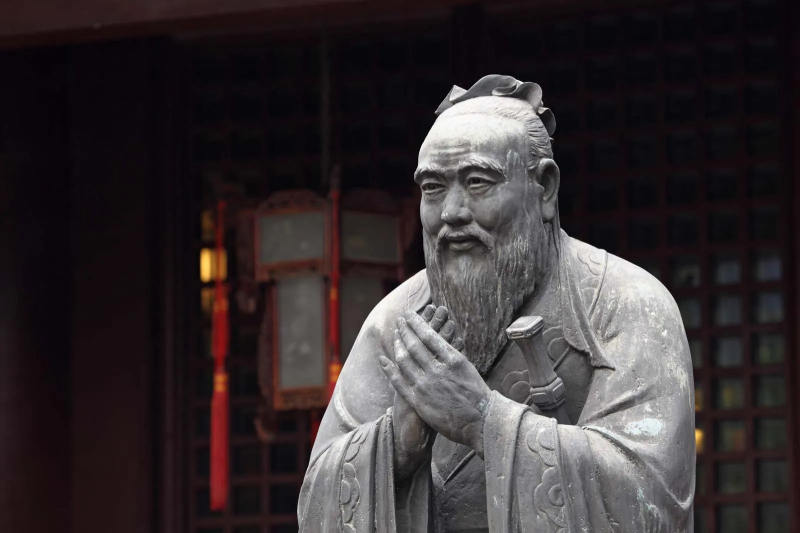
Source: futurelearn.com 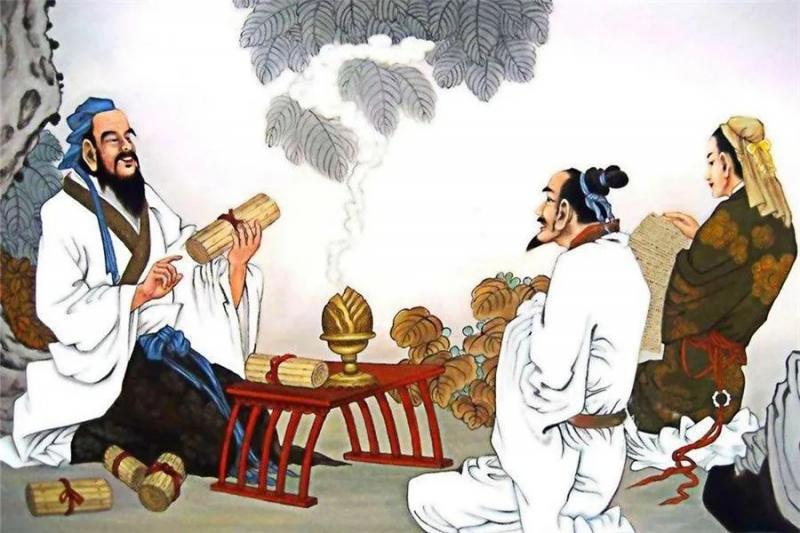
Source: britannica.com -
One of the most influential major contributions of Confucius he made is coined the concept of meritocracy. Meritocracy is a person's rights according to his own ability, not because of his noble background. As can be seen in most of the well-known government organizations, in ancient times, government positions were held by the heirs of previous holders, and they were entrusted with this authority only on the basis of the status of their family. Confucius fought against this feudal system by introducing the idea of the imperial examination structure in China. This structure allows anyone who has passed the exam to hold a government office. He believed in the nobility of virtue, not the nobility of blood. This policy was introduced during the Sui dynasty, providing an opportunity for the less fortunate to show off their talents and bring honor and wealth to their families.
The formation of Confucius' moral thought is also based on the acquisition and inheritance of ideas on ethics and morality in ancient Chinese texts and scriptures such as the thought of heaven and earth. Besides, an indispensable factor to form Confucius's moral thought is his personal qualities. In particular, the highest quality following Confucius's life has coined the concept of meritocracy, always upholding virtue, taking morality as the priority, always caring for the survival of the country, understanding the suffering of the people,... has molded his moral thought.
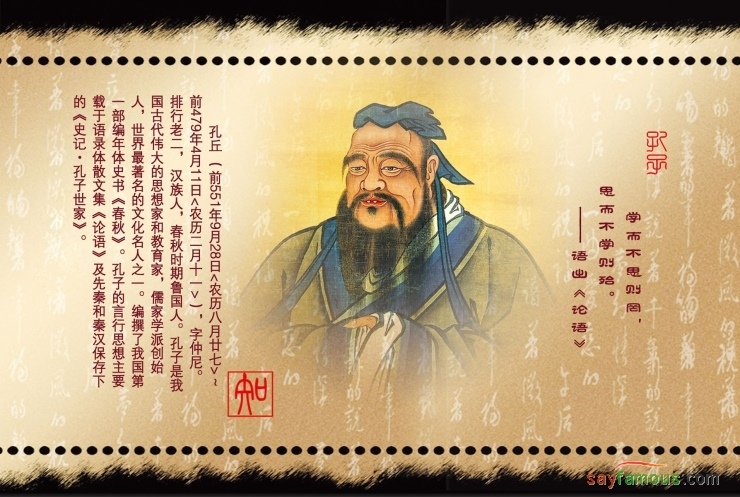
Source: ancientchinaconfucianism.weebly.com 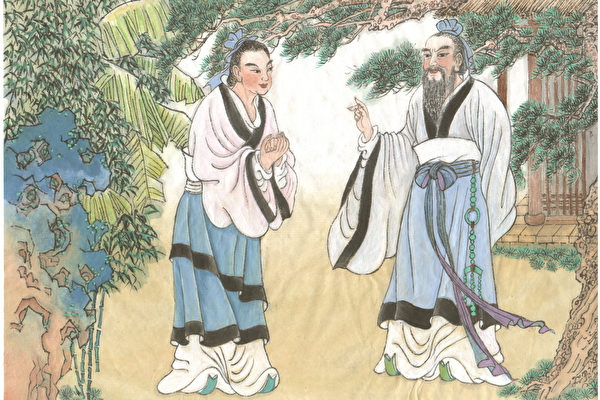
Source: theepochtimes.com -
The Analects of Confucius is a book based on the teachings of Confucius during his life and written by his followers after his death, which is considered the major contribution of Confucius to China and the world. As the title of the book literally means selected speeches, Analects is a collection of famous and influential Confucius sayings. It is believed that the book records some of the speeches that actually took place between Confucius and his disciples. The book was published during the Han Dynasty (206 BC – 220 AD) and has two versions: the Qi version with 22 chapters and the Li version with 20 chapters. They are called Pyongyang Analect and Dingzhou Analect.
The Analects of Confucius influenced a lot of people in China and is still watched by many to this day. The philosophies of Confucius were not limited to a single subject. From social issues to his thoughts on how education can benefit humanity, Analects covers a wide range of topics including ethics and dignity. It is about following the right life that will eventually teach your followers and future generations about the same path. The teachings of Confucius can be seen as practical in a new way. He mainly talks about the rigor of maintaining an ethical lifestyle and acting in accordance with his beliefs. Although the words and ideas in Analects date back centuries, readers will find it interesting that they continue to be considered highly relevant today.
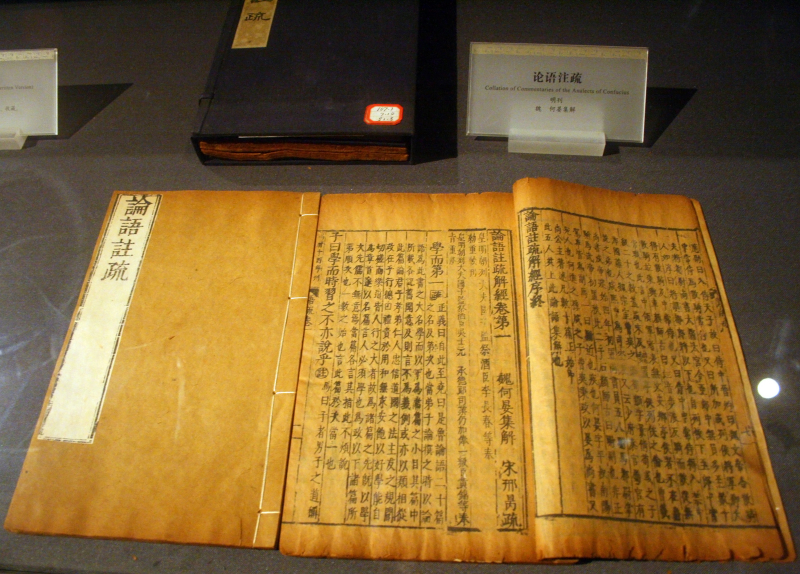
Source: simonandschuster.com 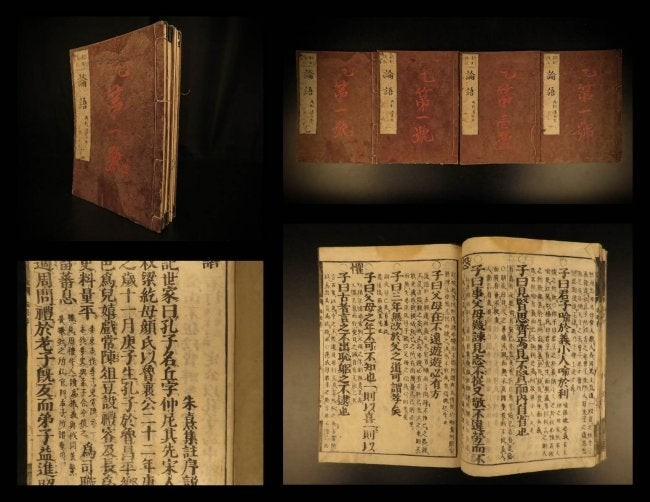
Source: cambriapress.com -
Traditionally, the major contributions of Confucius are credited to him as the author or editor of "The Five Classics". Although many modern scholars dispute it, Confucius is traditionally credited with authoring or editing many ancient Chinese texts including "The Five Classics". The five classics became popular during the Warring States period (circa 475 - 221 BC) but it was not until the Han Dynasty (206 BC - 220 AD) that they began to be considered a series. Considered the golden age of ancient China, the Han Dynasty adopted Confucianism as its official ideology and the Five Classics as part of a state-sponsored curriculum.
The Five Classics, in many ways, form the essence of Confucianism. First, the Book of Documents is also known as the "Book of Literature", which is considered the first narrative history of ancient China. A 58-chapter compilation, it details the events of ancient China. The second is the Classic of Poetry - a collection of 305 poems divided into 160 folk songs, 105 ceremonial songs, sung at court ceremonies, and 40 hymns and eulogies, sung in sacrifices to the gods and spirits of the ancestors of the royal family. The third work is the Book of Rites - describing ancient rites, social forms, and court rituals. The Book of Rites was the basis of many ceremonial principles that arose in later imperial China. The next work is the I Ching, commonly known as the I Ching or the Book of Changes; It contains a system of divination, focusing largely on the principles of yin and yang. Divination is the attempt to gain insight into a question or situation through a standardized and occult process or ritual. The final work is the Spring and Autumn Annals, which are chronicles of the country of Lu, home of Confucius. They imply condemnation of appropriation, murder, incest, etc.
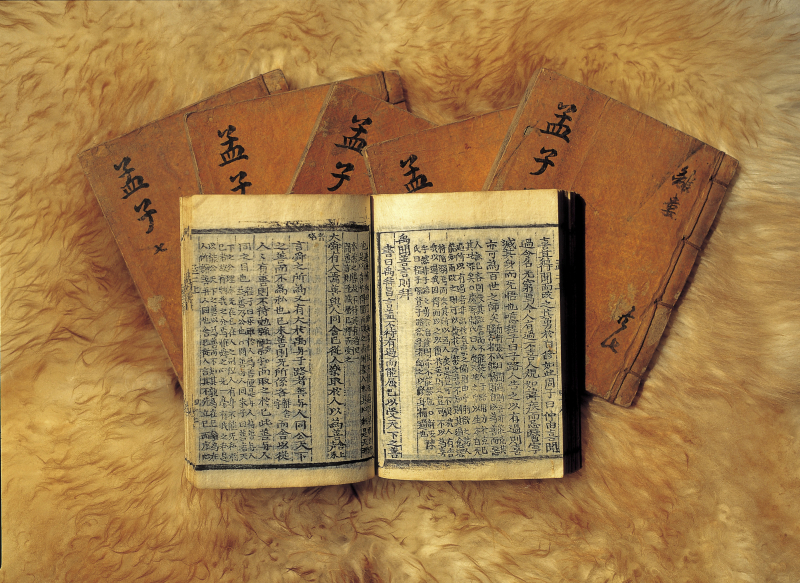
Source: shorthistory.org 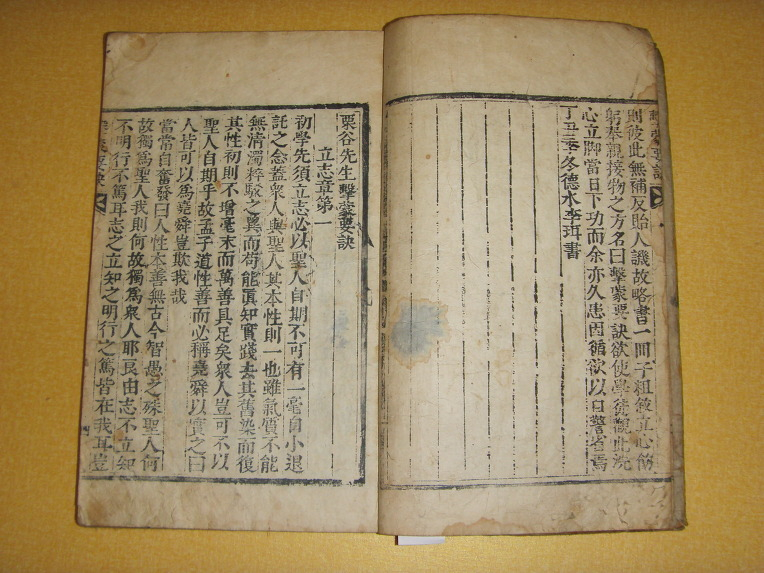
Source: britannica.com -
Major contributions of Confucius are his teachings that inspired Neo-Confucianism, which influenced China for nearly six centuries. Neo-Confucianism is an updated version of Confucianism. It tried to bring about sensible changes to Confucianism such as the elimination of superstitions stemming from the mystical theories of Buddhism and Taoism. Neo-Confucianism logically and rationally promotes what appeals to its adherents. It started in the Tang dynasty but completely emerged as a newer version in the Song and Ming dynasties.
The revival of Confucianism in China was led by the great philosopher Zhu Xi. Zhu Xi has written a number of books and essays to provide a clear and rational view of Neo-Confucianism. His philosophies and ideas were similar to many of the world's previous great philosophers who were influenced by Confucianism. The books he wrote have influenced China for many years and have been included in the Chinese civil examinations for more than 10 decades. Four Books or Shishu, written by Zhu Xi explored China's belief system through the eyes of Confucianism. Great learning explores Chinese philosophical, governmental, and political investigations. The Chinese doctrine means teaching the right way to attain the golden virtues of Confucianism. Analects is a compilation of conversations between Confucius and his disciples. It includes many quotes from Confucius. Finally, there is Mencius - a collection of works by the Confucian philosopher Mencius that demonstrates his Confucian way of thinking.
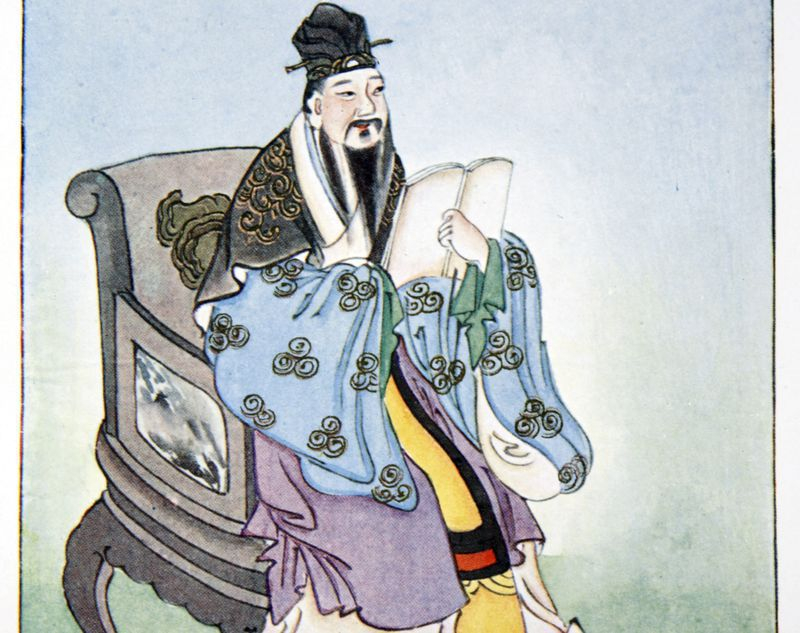
Source: education.nationalgeographic.org 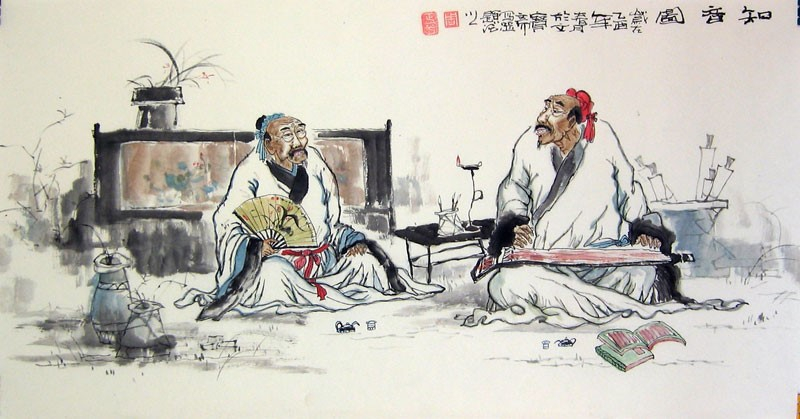
Source: education.nationalgeographic.org -
Major contributions of Confucius are his philosophies which are one of the three great teachings of China. In China, the term San Jiao (three teachings) can be traced back to eminent scholars in the sixth century AD. It is a general term referring to the philosophies of Confucianism, Buddhism, and Taoism; which had the greatest influence on Chinese Civilization. Here are a few examples of how the teachings of Confucius are still influential in China. Confucius advocates respect for elders, ancestors, clans, and the state; something can be observed even today about the degree of reverence for power and age in China. Confucian thought advocated "filial piety" or devotion to parents. The family remains the main unit of social organization in China and is valued and nurtured. Collectivism is inherent in Confucian thought. Therefore, the Chinese are highly cultured to think about collective responsibility towards their family, community, and country in general. Influenced by Confucianism, in Chinese culture, is an intellectual who is not limited to studying alone.
In San Jiao, Confucianism is the most ancient Chinese belief system, dating back to the Zhou Dynasty (770-476 BC), with some of its ideas even dating back to a much earlier period. Confucianism places particular emphasis on social norms and moral values, as well as the notion that through pursuit and study, a good and moral character can be achieved. Filial piety including ancestor worship, humanity, rules or rituals, as well as strict adherence to social roles, are all an integral part of Confucianism. Under imperial rule, the elite followed Confucius's edicts arduously; in charge of moral education for the people and administering the local government. It is thought that a balanced and harmonious existence can be created if people adhere to their assigned roles in society and properly perform rituals.
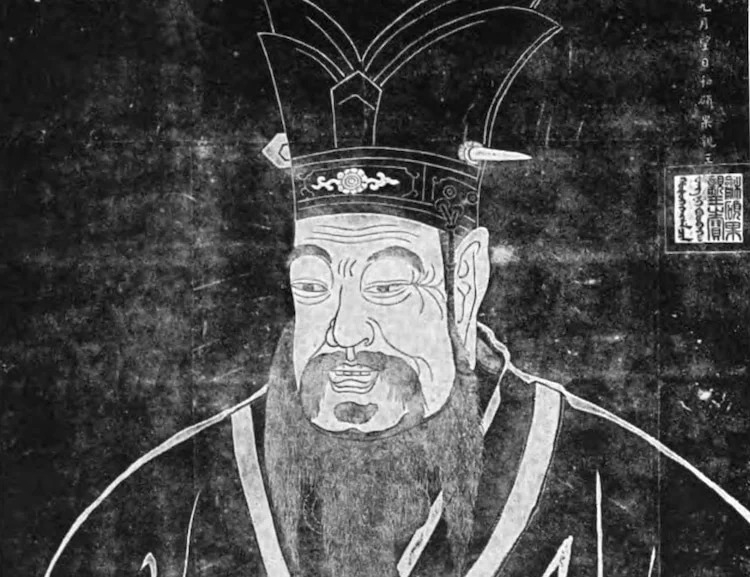
Source: chinahighlights.com 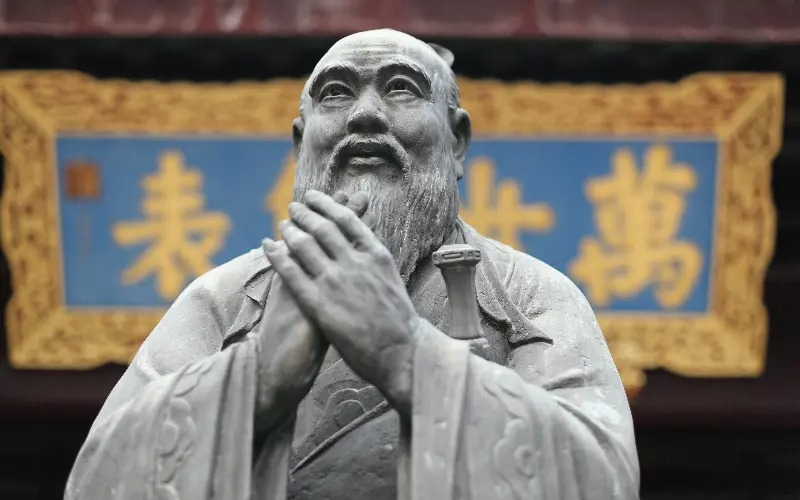
Source: historyhit.com -
His emphasis on social harmony forms the basis of Chinese society, this is one of the major contributions of Confucius. Impact on society, Confucius places great emphasis on social harmony, which is by far the foundation for Chinese society and is praised. Confucian thought holds that each individual has a place in the social order and they should be respected for that. This respect must be reciprocal, so while the wife must respect her husband, the husband needs to be kind to her. Young people must show respect to their elders; and in turn, they must be kind to them and guide them. The ruler must be responsible and humane towards his subjects, and this must be reciprocated by submission to the ruler.
Especially in impact on society, Confucianism has brought stability into a country, which has been affected, in many ways, by previous changes in the dynasties. He implemented his philosophy and transformed ancient China into a structured society. This structured society is based on the work effort put forth by the social class. Everyone fulfills their responsibilities and creates a harmonious situation which also the country's prospects. Today, the lessons and teachings are still valuable, admired, and praised by many generations of China, and have a great influence on the lives of each person as well as the whole society.
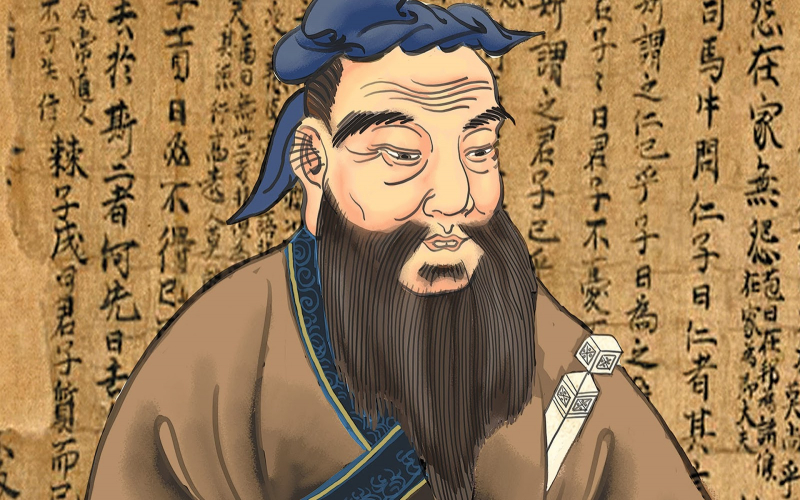
Source: famousphilosophers.org 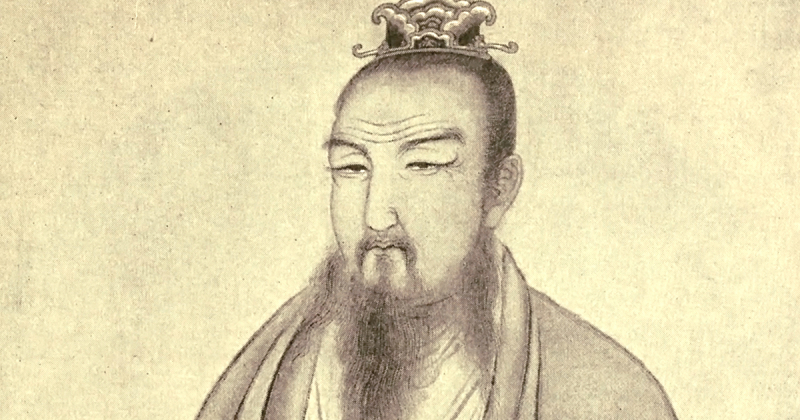
Source: chinainstitute.org












